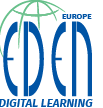
- This event has passed.

10th European Open and Digital Learning Week (EODLW) 2025
November 24, 2025 – November 28, 2025
EDEN proudly hosts the European Open and Digital Learning Week (EODLW) for the tenth consecutive year.
This year’s theme is: The Human–AI Partnership: Transforming Teaching and Learning
The event is organised in partnership with, the United States Distance Learning Association (USDLA), which will be holding its National Distance Learning Week (NDLW), and the Flexible Learning Association of New Zealand (FLANZ) and Open and Distance Learning Association of Australia (ODLAA), who joined efforts to offer the Asia-Pacific Online and Distance Education Week (APODE).
This year’s EODLW featured six engaging sessions, with 7 moderators and 24 speakers, and welcomed 720 participants from more than 70 countries. Contributors shared best practices, research insights, and future-focused perspectives on how human expertise and AI technologies can work together to build more inclusive, effective, and future-ready learning environments.
During EODLW, participants have access to daily online webinars and panel sessions led by expert scholars and practitioners who present best practices and expertise in online and distance education, and engage with the audience in discussing the challenges of shaping the future of education and how to better harness the potential of new models of online and distance learning.
Topic: The Union of Skills and Digital Education: Mutual Implications for Practice and Policy (EDEN DLE White Paper)
Format: presentation
Description: EDEN DLE is a major player in the European Digital Education arena. In this session, a White Paper examining the European Commission’s Union of Skills initiative through the lens of digital education, will be introduced. The webinar will discuss the document and will emphasise the importance of striking a balance between technological innovation and educational values, ensuring that skills development policies promote equity, resilience, and meaningful participation in the evolving digital society. At the end, we will identify how Digital Education is contributing and could keep contruting to the developemnt of the Union of Skills across Europe and beyond.
Moderator:

Albert Sangrà, Universitat Oberta de Catalunya, EDEN DLE, VP Strategic Thinking & Networking
Albert Sangrà is EDEN DLE Vice-President, Strategic Thinking & Networking and Fellows Council Chair; Director of the Futures of Education Research Centre (UOC-FuturEd); Director for the UNESCO Chair in Education and Technology for Social Change; Full professor and researcher at the Open University of Catalonia, Department of Psychology and Education. Member of the founder team of this university (1994-95), where I served as Director, Methodology and Educational Innovation until 2004, being in charge of the educational model of the university; Director of the M.Sc. program in Education and ICT (e-learning) (2006-2012), and Director of the eLearn Center (2012-2014). I have worked as a consultant and trainer in several online and blended learning projects in Europe, America, Asia, and Australia, focusing on implementation strategies for the use of technology in teaching and learning and its quality. Former Vice-President, European Foundation of Quality on E-Learning (EFQUEL), and member of the Executive Committee of EDEN (2003-2009). Recipient of the 2015 Award for Excellence in eLearning awarded by the World Education Congress. Albert Sangra is a researcher at the Edul@b research group and a Research Associate at Contact North, Canada, and the Current Director of the Industrial Doctorates Programme, Government of Catalonia.
Speakers:
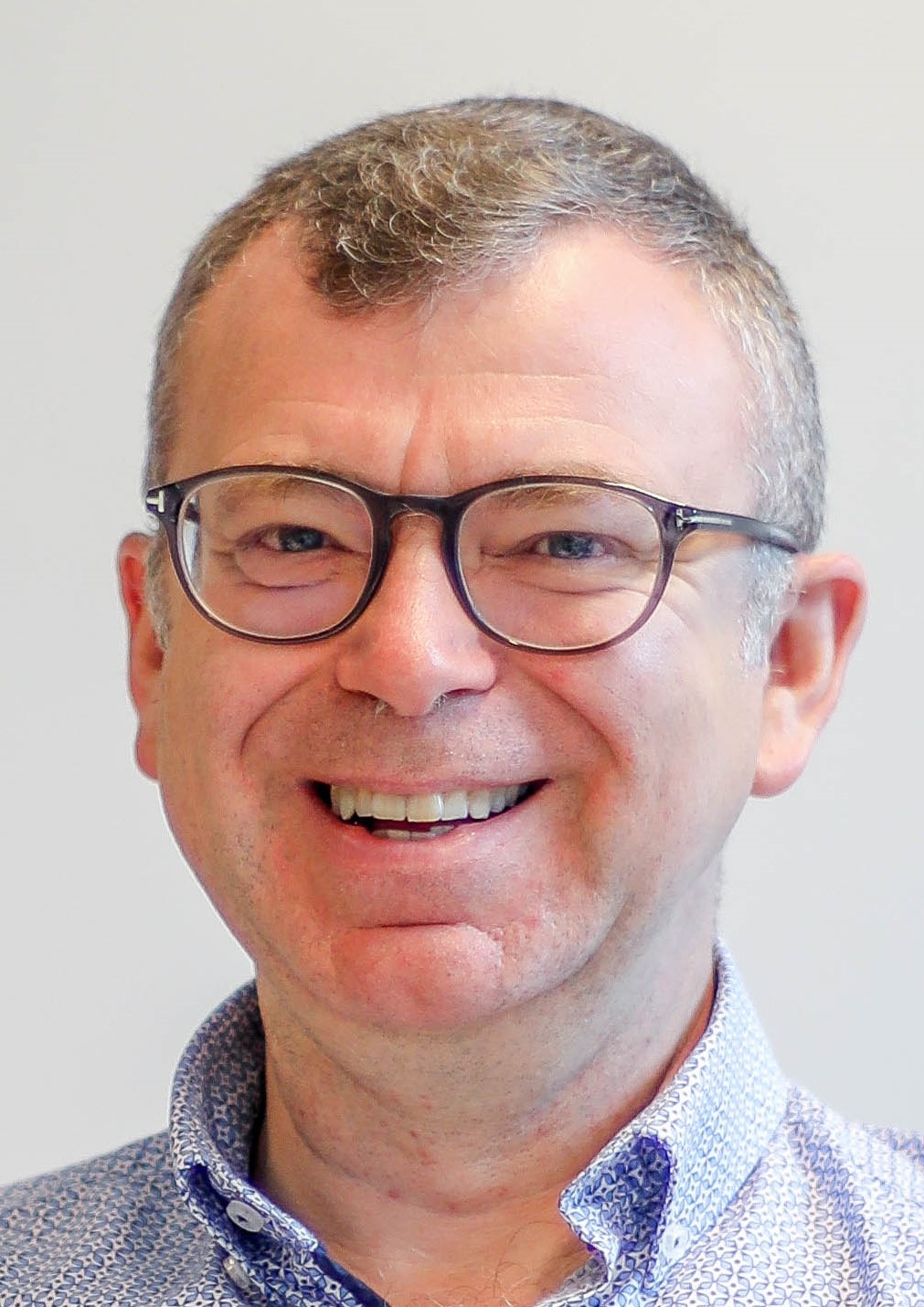
Wim Van Petegem, Faculty of Engineering Technology, KU Leuven, Belgium, EDEN DLE President
Wim Van Petegem holds MSc degrees in Electrical Engineering (University of Ghent, Belgium) and Biomedical Engineering (KU Leuven, Belgium), and earned his PhD in Electrical Engineering from KU Leuven in 1993. He has held academic positions at the University of Alberta (Canada), the Open University of the Netherlands, and Leuven University College (Belgium).
From 2001 to 2012, he led KU Leuven’s Media and Learning Center and later served as Director of the Teaching and Learning Department. Currently, he is Professor at the Faculty of Engineering Technology at KU Leuven, where he teaches courses in software engineering and professional/intercultural engineering skills, integrating innovative teaching and learning approaches. He is also responsible for company internships and chairs several Examination Boards at his faculty. He regularly serves on quality review panels for higher education in Flanders and the Netherlands.
His research focuses on learning technologies, instructional design, engineering education, and digital scholarship, and is supervising several PhD students from across the globe. He is also deeply involved in development cooperation projects with the Global South. He has delivered training on educational innovation and digital competences for educators and support staff in countries like South Africa, Ecuador, Ethiopia, Suriname, Bolivia, and the Philippines.
He is active in international academic networks such as SEFI and Media and Learning Association, and currently he serves as President of EDEN Digital Learning Europe.

Deborah Arnold, NTT Data, Belgium
Deborah Arnold is a digital education expert with over 30 years’ experience in teaching, management, and consulting across Europe. She holds a PhD (cum laude) from UOC, awarded for her research on digital leadership in higher education. At NTT DATA, she leads the Erasmus Mundus Support Initiative and researches digitalisation for joint Master’s programmes. A former EDEN Vice-President and Senior Fellow, she is active in mentoring, leadership development, and international boards, and is a frequent speaker and published author.
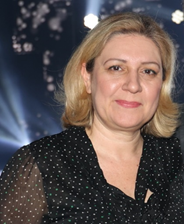
Dr Sandra Kučina Softić, University of Zagreb University Computing Centre, Croatia, EDEN Senior Fellow and EDEN Fellows Council Board member
Dr Sandra Kučina Softić is Assistant Director at the University of Zagreb University Computing Centre (Croatia) and Head of the E-learning Centre. She has over 25 years of experience working in higher education. Her work focuses on monitoring and fostering e-learning in Croatian higher education, providing support and advice to institutions, teachers, and students on implementing new technologies in learning and teaching. She has a master’s degree in Digital Education from the University of Edinburgh, UK, and a PhD in Information and Communication Technologies from the University of Zagreb, Croatia. In 2021, she authored a book on digital transformation in higher education (published in Croatian). She is a professor at the University of Mostar, Bosnia and Herzegovina, DOBA University, Slovenia and University North, Croatia. She was the EDEN president from 2019 to 2022 and EDEN DLE Vice-President for Open Professional Collaboration from 2023 to 2025.
Topic: Strategies to maintain well-being in the digital education ecosystem
Format: Presentations and discussion with participants
Description: The session will present new concepts and proposals on how to maintain digital well-being in the digital education ecosystem and how to support schools and their communities with available resources when the well-being of teachers and students is outweighed by challenges. Presentations will be focused on the overall digital well-being framework, the resources already available and the policy experimentation projects working to propose digital well-being and sustainability for inclusive future classrooms in Europe.
Moderator(s): prof. dr. Airina Volungevičienė, Vytautas Magnus University, Lithuania, EDEN Senior Fellow
Speakers:
– Digital Well-being Framework for Digital Education Ecosystem. Airina Volungevičienė, Vytautas Magnus University, Lithuania
– How education systems across Europe are addressing well-being in increasingly digital school environments. Eirini Symeonidou, European Schoolnet, Belgium.
– Inclusive Futures project. Éva-Terézia Vesely, Focus Eco Center, Romania, Orsolya Tuba, University of Jyväskylä, Finland, András Merz, Regional Centre for Information and Scientific Development, Hungary.
Moderator:
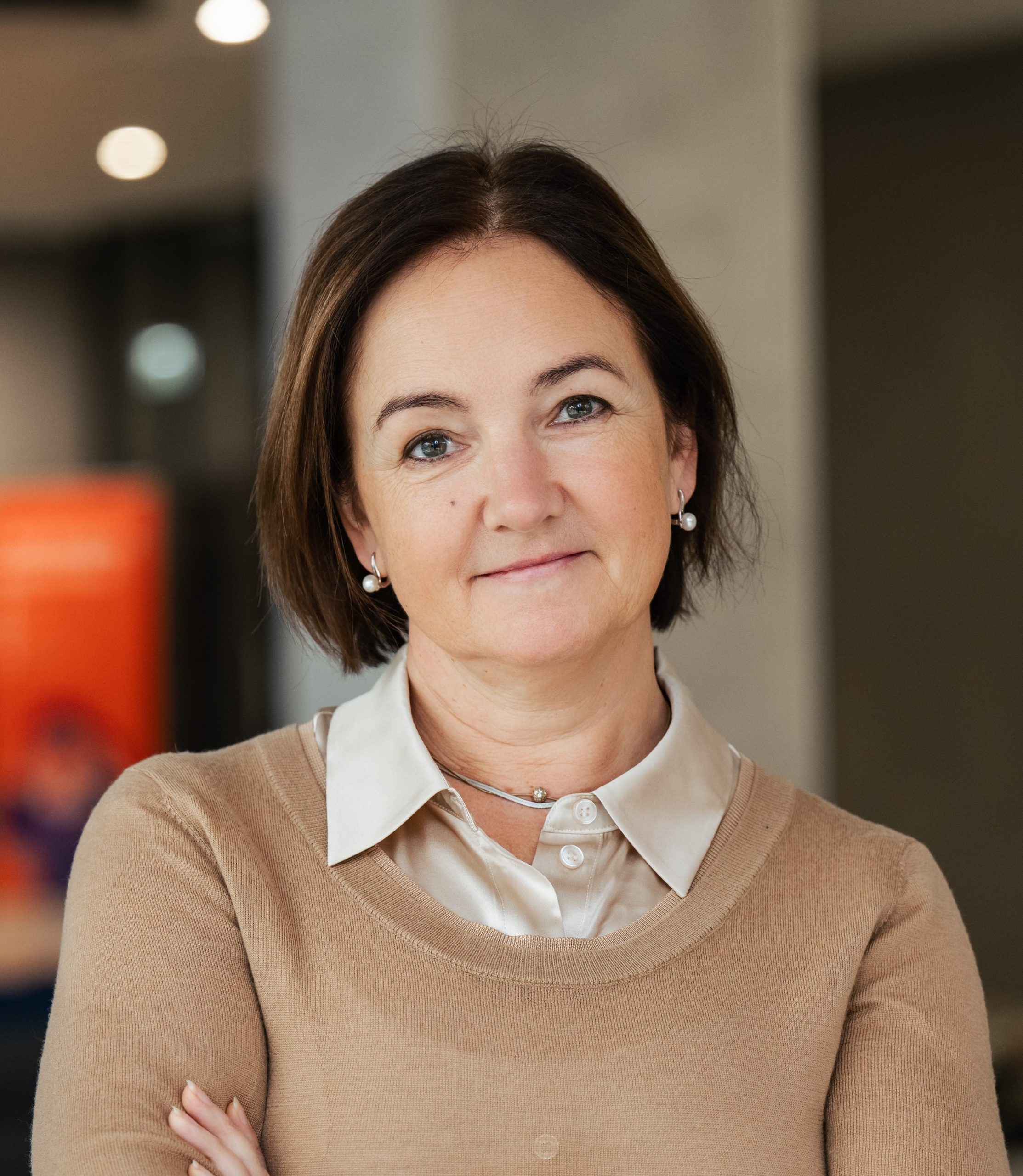
Prof. dr. Airina Volungevičienė, Vytautas Magnus University, Lithuania, EDEN Senior Fellow
Prof. dr. Airina Volungevičienė has been working among leading researchers, methodology specialists and education policy makers in the area of technology enhanced learning (TEL) development in Europe and Lithuania since 1997. Having established the Lithuanian Distance and e-Learning Association (2010), she continued as a leader in research and project work to promote the development of TEL in in HE, schools, VET and adult learning. Her main role at Vytautas Magnus University is to lead digital education innovations with research, experiments and practice. She was involved in EDEN Governance since 2010, as the Board member, Vice President for Research (2016 – 2019) and the President (2016 – 2021). Currently, her research interests are focused on digital well-being, awareness of using AI for learning, teaching and assessment, as well as EdTech quality and added value for education.
LinkedIn
ORCID

Eirini Symeonidou, European Schoolnet
Eirini Symeonidou is a Project Coordinator at European Schoolnet (EUN), where she focuses on accessibility and inclusion in digital education, while supporting teacher training activities and fostering collaboration within networks under the Future Classroom Lab (FCL). With seven years of experience, she has worked with multiple EU institutions and NGOs across the European Union and the UK, driven by her strong commitment to child rights, education, and inclusion. Eirini is currently a PhD candidate in Inclusion, AI, and Education, focusing on how innovative technologies can advance equitable and inclusive learning opportunities.

Dr. Éva-Terézia Vesely, Focus Eco Center, Romania
Dr. Vesely is an environmental economist and a teacher. With a keen interest in generating insights for better informed societal decision-making, she applied the natural capital and ecosystem services frameworks in a range of contexts from low impact urban design to soil organic matter recovery and endangered species conservation. She was one of the pioneers in the field of research that proposed implementing the use of economic rationales to justify and assess ecological restoration. As a researcher at the Manaaki Whenua Crown Research Institute in New Zealand and a guest lecturer at the University of Auckland, she worked closely with natural and social scientists and staff from local and regional territorial authorities and national policy makers. Upon her return to Europe, she got involved with teaching and working with Focus Eco Center, an environmental NGO in Romania. She does research and practical experimentation with sustainability education and inclusiveness.

Orsolya Tuba, Finn minta, Finland
Orsolya Tuba, founder and CEO at Finn minta and doctoral / project researcher at the University of Jyväskylä. As part of the Inclusive Future project, the Finn minta team is leading the development of an Inclusive and Sustainable Pedagogical Model (www.inclusive-future.eu). Finn minta, is a globally connected SME based in Jyväskylä, Finland, specialising in inclusive and sustainable pedagogies, research design and teachers’ forum events. At the university side, Orsolya has been working at the Innovative Learning Environments and in the Critical Approaches to Sustainability, Global Education, and Development groups. An ongoing research at the PERMA Digital project (www.perma-digital.eu) is specifically looking at digital well-being of adolescents. Orsolya’s doctoral research is concerned with education for planetary well-being and action competence in the age of AI.
LinkedIn
ORCID

András Merza, Regional Centre for Information and Scientific Development Ltd.
Since 2020, András Merza has been working on EU direct funds and project proposals under programmes such as Horizon, Erasmus+. In 2022, he became the project manager of the Hungarian Researchers’ Night, and since 2023, he has been serving as the administrative project coordinator of the Erasmus+ projects, while also supporting several other initiatives. He was the initiator of the InclusiveFuture project, demonstrating his commitment to inclusive and sustainable education. His experience, professional network, and broad skill set enable him to effectively navigate and successfully manage both new and ongoing projects within the diverse EU funding landscape, including H2020, Horizon Europe, Erasmus+, URBACT, Interreg and LIFE.
LinkedIn
Topic: GenAI as an Educational Gatekeeper: Balancing Personalisation and Standardisation in Higher Education
Format: presentation
Description: Generative AI (GenAI) is increasingly embedded in higher education, offering scalability in tutoring, adaptive learning and assessment. These opportunities, however, raise tensions around academic control, coherence and equity. This presentation applies gatekeeping theory to examine how GenAI shapes the selection, structuring and delivery of knowledge in education, drawing comparisons with the shift from human to algorithmic gatekeepers in media.
The analysis combines literature, institutional AI policies and illustrative cases to address three questions: how GenAI influences access to knowledge; what risks personalisation poses for academic consistency; and in what ways GenAI functions as a gatekeeper in learning environments. Examples considered include AI tutoring systems, Q&A chatbots, adaptive learning platforms and automated assessment.
Key challenges include content control, bias, dependence on proprietary systems and the trade-off between personalisation and standardisation. To address these, the presentation proposes practical measures: educator review of AI outputs, transparent governance mechanisms (such as bias audits), AI literacy for staff and students, and investment in open, modifiable infrastructures.
The overall argument is that innovation must be balanced with educational integrity. Effective oversight and active academic involvement are essential to ensure that GenAI supports, rather than displaces, the values and diversity of higher education.
Moderator:

Dr Fiona Aiken, School of Environment, Earth and Ecosystem Sciences, Open University, UK, EDEN NAP Steering Committee Chair
Fiona Aiken is a Senior Lecturer, Staff tutor in the STEM faculty, School of Environment, Earth and Ecosystem Sciences with the Open University, UK. Fiona’s current research interests are in educational research focussing on where improvements can be made to the student experience for disadvantaged students and to improving their retention and progression between different stages of a qualification. Fiona is currently the chair of the EDEN NAP steering committee; part of the role involves over-seeing the programme of EDEN NAP webinars.
Speaker:

Felipe Tessarolo, Institute of Educational Technology, The Open University, UK
Felipe Tessarolo is a Learning and Teaching Enhancement Manager at The Open University’s (UK) Institute of Educational Technology. He contributes to strategic projects exploring inclusive curriculum design, digital learning innovation, and the role of AI in education, including AIDA, an institutional AI assistant, and ADMIT, a European collaboration on the pedagogical and ethical use of large language models.
Topic: Educators in the Loop: Building Meaningful Human–AI Partnerships in Education
Format: presentations
Description: Generative AI is becoming a key part of education, across both K–12 and higher education, opening new opportunities for collaboration between humans and intelligent systems. Generative AI holds the potential to complement and extend human expertise, helping educators and trainers engage with AI in responsible, ethical, and educationally meaningful ways. As innovation accelerates, it becomes vital to keep human judgment, pedagogical purpose, and professional values at the center. AI should strengthen—not disrupt—the foundations of instruction and learning. To achieve this, educators and trainers need practical methods to evaluate their real impact on instruction and learning.
This 60-minute online and open workshop aims to equip participants with both conceptual insights and practical experience in designing and evaluating Human–AI partnerships to advance instruction and learning.
The interactive session will focus on two key aspects:
– Designing effective Human–AI instruction practices – Exploring practical examples of effective educators–AI collaboration and strategies to create engaging and sustainable AI training for educators.
– Evaluating the impact of AI-enhanced training – Discovering methods to assess whether these practices and programs truly promote change in educators’ knowledge, motivation, and instructional behavior.
Participants will not just share ideas but also experiment with structured AI-supported practices, apply evaluation frameworks, and discuss real-world examples of AI integration in education.
It will bring together insights from two European projects, AI-EmpaTe and EffecTive:
– AI-EmpaTe focuses on practical AI training for educators, offering ready-made Human–AI partnership practices that strengthen educators’ agency, creativity, and decision-making. https://www.aiempate.com/
– EffecTive specializes in evaluating the outcomes of professional development programs, providing frameworks to assess how AI-focused training influences educators’ practice and promotes meaningful, long-term change. https://project-effective.eu/
By combining AI-EmpaTe’s practical orientation with EffecTive’s evidence-based evaluation models, this workshop provides a rich, hands-on experience that supports both the design and assessment of AI-enhanced practices.
Key Takeaways:
– Concrete examples of meaningful Human–AI partnerships in instruction and learning.
– Practical tools and methods to design and evaluate AI-enhanced practices that align with educators’ pedagogical and ethical values.
– Hands-on experience that demonstrates how AI can support—rather than substitute—the educator’s professional judgment, enabling participants to develop their own Human–AI practices with confidence and purpose.
Participant Interactivity:
This session is designed to be highly interactive, combining collaborative discussions with guided hands-on exploration. Participants will actively engage in:
– Hands-on exercises – Experimenting with ready-made AI-supported instruction practices and unpacking the design principles behind them, so participants can later adapt and create their own Human–AI practices.
– Small-group discussions – Analyzing real examples from the AI-EmpaTe and EffecTive projects to identify what makes Human–AI collaboration effective, and how these insights can inform participants’ own instruction or training contexts.
– Collaborative reflection – Synthesizing insights, sharing lessons learned, and translating them into actionable strategies for developing and evaluating Human–AI partnerships in participants’ everyday practice.
The online workshop offers an interactive space where educators collaborate, experiment, and reflect—leaving with concrete strategies to design and evaluate Human–AI practices that bring real added value to instruction, learning, and professional growth.
Moderator:

Guy Cohen, School of Education, Department of Education in Mathematics, Science, and Technology, Tel Aviv University, Israel
Guy Cohen is a Phd Student Researcher at the School of Education, Department of Education in Mathematics, Science, and Technology, Tel Aviv University. He is actively involved in leading and participating in various European and national research and development projects focused on learning technologies, artificial intelligence in education, self-regulated learning, and pedagogical digital competence, facilitated through the Science and Technology Education Center (SATEC) and the Advanced Learning and Technology (AL&T) Research Lab at Tel Aviv University.
Speakers:

Adi Yaakov Azaria, Advanced Learning and Technology (AL&T) Research Lab and the Science and Technology Education Center (SATEC) at Tel Aviv University, Israel
Adi Yaakov Azaria is a MA researcher at the Advanced Learning and Technology (AL&T) Research Lab and the Science and Technology Education Center (SATEC) at Tel Aviv University. She holds an MA in Learning Disabilities and is a special education teacher and certified didactic diagnostician, specializing in the inclusion of students with special needs in the education system. Adi has extensive experience in mentoring teaching staff, managing educational projects, and serves as a social advocate for individuals with special needs.

Chen Bitton, Advanced Learning and Technology (AL&T) Research Lab and the Science and Technology Education Center (SATEC) at Tel Aviv University, Israel
Chen Bitton is a MA researcher at the Advanced Learning and Technology (AL&T) Research Lab and the Science and Technology Education Center (SATEC) at Tel Aviv University. She is a certified English teacher and remedial education specialist who integrates classroom practice, academic research, and social activism. Based in a peripheral town, she fosters technological curiosity and empowers young people, especially girls, to explore innovation through community meetups and school talks. As a researcher at Tel Aviv University and a member of the EffecTive Horizon Europe project, her work focuses on Self-Regulated Learning and the integration of Generative AI in teacher education, with the goal of advancing educational equity through evidence-based innovation.

Merav Rotary Saban, Department of Mathematics, Science, and Technology Education at the School of Education, Tel Aviv University, Israel
Merav Rotary Saban is a PhD student researcher in the Department of Mathematics, Science, and Technology Education at the School of Education, Tel Aviv University. Her research explores the intersection between generative artificial intelligence and teaching and learning processes in higher education. It focuses on the impact of AI technologies on academic faculty, examining the pedagogical, professional, and psychological aspects of integrating these technologies into teaching. In parallel, Merav works at the Digital Pedagogy Unit in a teacher training college in Israel, where she supports lecturers in integrating techno-pedagogical tools into their teaching through personalized guidance and professional development workshops, with a particular emphasis on generative AI.

Prof. Anat Cohen, Science and Technology Education Centre (SATEC) and the Head of the Advanced Learning and Technology Research Lab (AL&T Lab), Tel Aviv University, Israel
Anat Cohen is an Associate Professor at Tel Aviv University, specializing in digital learning, technology-enhanced education, and self-regulated learning. She is the Head of the Science and Technology Education Centre (SATEC) and the Head of the Advanced Learning and Technology Research Lab (AL&T Lab). Anat has been involved in multiple EU-funded projects, including Horizon and ERASMUS+, focusing on AI in education, pedagogical digital competence, and open educational resources. Through her work at SATEC, the AL&T Lab, and her affiliation with the UNESCO Chair, she supports research and innovation that bridge technology, pedagogy, and lifelong learning.

Dr. Alla Bronshtein, Unit for the Advancement of Teaching Quality, Research, and Evaluation at the Gray Faculty of Medical and Health Sciences, Tel Aviv University, Israel
Dr. Alla Bronshtein is the Head of the Unit for the Advancement of Teaching Quality, Research, and Evaluation at the Gray Faculty of Medical and Health Sciences, Tel Aviv University. Her work focuses on psychometrics, developing frameworks for formative and summative assessment, faculty development, promoting self-regulated learning (SRL) skills, and integrating technologies, including AI, into educational processes. Alla is also involved in applied research projects at both the national and international levels.
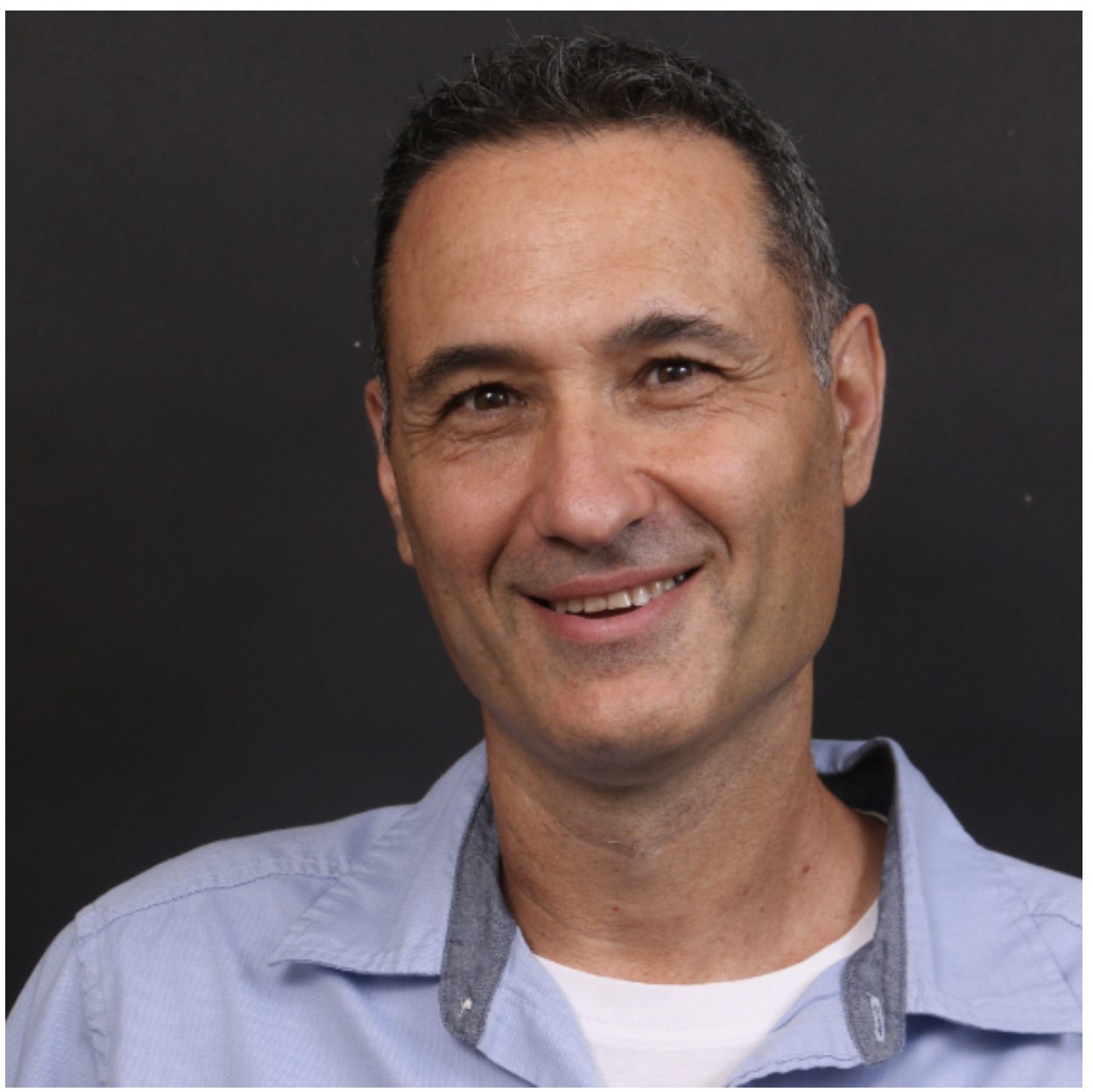
Dr. Ran Tel-Nir, Science and Technology Education Center, Tel Aviv University, Israel
Dr. Ran Tel-Nir has been a lecturer for many years in the course “Advanced Topics in Data Mining and Knowledge Discovery” at Tel Aviv University, as part of the Data Analysis specialization program. Dr. Tel-Nir is also a member at the Science and Technology Education Center (SATEC) and the Advanced Learning and Technology (AL&T) Research Lab at Tel Aviv University. Has been involved in EU-funded projects, including Horizon and ERASMUS+. His research focuses on developing learning methodologies while applying emerging technologies to enhance and optimize education, including the integration of generative artificial intelligence, virtual technology and gamification. Additionally, he incorporates principles from educational neuroscience to create meaningful and long-lasting learning experiences. Ran holds a Ph.D. in Information Systems, M.Sc. in Biomedical Engineering, B.Sc. in Electrical Engineering, and M.A. in Education (Educational Technologies).
Topic: Co-Creating the Future: Human–AI Partnerships in Curriculum Design, Teaching, and Learner Support
Format: Presentations and discussion with participants
Description: This session explores how generative AI is being purposefully integrated into curriculum innovation, academic authorship, and student-facing support at The Open University. Anchored in the theme The Human–AI Partnership: Transforming Teaching and Learning, it showcases three strategic initiatives—SCRIBE, AIDA, and student-facing dashboards—that exemplify collaborative intelligence in practice. Dr Duygu Bektik and Dr Thomas Ullmann introduce SCRIBE, a secure, scalable AI course writing assistant developed by the Learning and Teaching Technologies team. Built on Microsoft’s Azure OpenAI platform, SCRIBE enables academic authors to co-create course materials through conversational and structured modes, accelerating curriculum production while preserving pedagogical integrity.
Dr Tim Coughlan presents insights from the development of AIDA, the OU’s AI Digital Assistant, drawing on recent research into educator influence over AI behaviour. His talk examines the design tensions between automation and human agency, and the implications for ethical, values-aligned AI deployment in education. Prof. Christothea Herodotou closes the session with a focus on student-facing dashboards and predictive analytics, highlighting how data visualisation and AI-driven insights can empower learners to reflect, self-regulate, and take ownership of their learning journeys.
The session will be chaired by Denise Whitelock, who has spent her career developing AI systems for Teaching and Learning. Together, these presentations offer a timely and practical view of how human–AI partnerships are reshaping teaching and learning, ranging from curriculum conception to learner engagement, while stressing the roles of trust, transparency, and institutional purpose.
Moderators:

Professor Dr Denise Whitelock, Institute of Educational Technology (IET), The Open University, UK, EDEN DLE Vice President
Professor Denise Whitelock is the Artificial Intelligence Lead at the Institute of Educational Technology (IET), The Open University, following a six-year tenure as its Director. A Professor of Technology Enhanced Learning, she brings over 25 years of expertise in applying Artificial Intelligence to the design, evaluation, and transformation of online and computer-based learning in higher education.
She led the EPSRC-funded Supportive Automated Feedback for Short Essays (SafeSea) project in collaboration with Oxford University, pioneering automated formative feedback systems that complement tutor support and enhance student writing development.
Denise currently leads the UK’s contribution to two major European initiatives. The first, ADMIT (Generative AI and Large Language Models in Higher Education), explores the educational and ethical frameworks needed to responsibly integrate LLMs and generative AI into teaching and learning. The second, Every1 (Enable Everyone’s Engagement in the eneRgY transition), unites experts across energy, education, and the social sciences to empower inclusive participation in Europe’s digital energy market.
Appointed Editor of Open Learning: The Journal of Open, Distance & e-Learning in 2018, Denise’s international standing is reflected in her visiting professorships at the Autonoma University of Barcelona, the British University in Dubai, and the Commonwealth of Learning in Canada. She currently serves as Board Member, Senior Fellow, and Vice President Research for EDEN Digital Learning Europe, and is a Fellow of the Academy of Social Sciences.
For a full list of publications, visit: http://oro.open.ac.uk/view/person/dmw8.html
Speakers:

Dr. Duygu Bektik, Institute of Educational Technology at The Open University, UK
Dr Duygu Bektik is a Lecturer at the Institute of Educational Technology at The Open University, UK, where she has worked since 2018. She serves as the Academic Lead for Research Career Development, overseeing professional development activities for research staff across all career stages. She is also the co-founder and academic lead of the OpenAIED special interest group, established in 2019, which brings together academics, practitioners, and researchers to advance the responsible use of AI in education.
Dr. Bektik plays a role in shaping the University’s adoption of AI, including co-leading a professional development course on Generative AI for Educators. As Deliverable Lead on the EU-funded ADMIT project, she focuses on developing educational and ethical frameworks for the integration of generative AI in higher education, with particular attention to diversity, inclusion, academic integrity, and digital literacy. She also serves as Workstream Delivery Lead for the £4.9m ESRC-funded Research Capability Hub (RCH) project, where she oversees the delivery of innovative, AI-enabled, personalised approaches to research capability and institutional collaboration.
Her recent AI-related projects include:
AIDA – An institutional AI digital assistant prototype designed to support student learning. Dr. Bektik led the design of pedagogical roles and co-created evaluation frameworks to investigate its use across diverse learning contexts.
SCRIBE – A generative AI-powered authoring assistant for curriculum teams, aimed at enabling more efficient and user-centred course development. She led on design-based research, iterative testing, and academic evaluation, with a strong focus on user-centred development and institutional integration.

Dr. Thomas Ullmann, Institute of Educational Technology at the Open University, UK
Dr Thomas Ullmann is a Senior Lecturer at the Institute of Educational Technology at the Open University and a Senior Fellow of the Higher Education Academy (SFHEA). He has over 15 years of experience in educational technology, developing and evaluating online learning and teaching solutions. He leads projects related to learning analytics, Artificial Intelligence (AI) in education, and innovative methods, especially text analytics, to support and measure teaching and learning. Dr Ullmann is currently the Academic Learning Analytics and Insight Lead for the OU-led Fleming Fund Global Learning Grant, evaluating the learning progress of professionals in Low- and Middle-Income Countries.

Dr. Tim Coughlan, Institute for Educational Technology at the Open University, UK
Dr Tim Coughlan is Associate Director for Research and Knowledge Exchange and a Senior Lecturer in the Institute for Educational Technology at the Open University. His research crosses the areas of Education and Human-Computer Interaction. He is particularly focused on the design and evaluation of systems that support inclusion, creativity, and openness in learning.
He led the development of Our Journey, a platform to support students to represent and reflect on their study journeys, and in ADMINS, led creation of a virtual assistant to support disabled students. More recent work has focused further on the ways in which AI assistants can support online study through the design and evaluation of an OU AI Digital Assistant (AIDA), and the use of VR simulations and AI to support healthcare training in collaboration with Goggleminds.
Tim chairs the Open University’s Securing Greater Accessibility (SeGA) Coordination Group, and the Tuition Accessibility Group, which provides a pan-university forum for enhancing accessibility. He also led creation of the postgraduate microcredential: Accessibility and Inclusive Learning.
Tim was previously a Horizon Research Fellow and Lecturer in the School of Computer Science at the University of Nottingham, where he was involved in a range of Digital Economy research projects including ArtMaps, Creativity Greenhouse, and Stories of User Appropriation.

Professor Dr. Christothea Herodotou, Institute of Educational Technology, The Open University, UK
Dr Christothea Herodotou is a Professor of Learning Technologies and Social Justice at the Open University UK and Associate Director of the Institute of Educational Technology, leading the Quality Enhancement and Innovation group. She has expertise in the design and evaluation of learning technologies that promote education opportunity and social justice, including learning analytics dashboards, online citizen science websites, and mobile game applications. She is the academic lead of nQuire – a community citizen science platform developed in partnership with the BBC, which supports the engagement of the public with scientific practices in ways that promote learning and awareness and nQuire for students, a teaching and learning platform aiming to develop students’ research skills through design thinking projects. She is also the evaluation lead of the Peace of Mind project, a multimillion project funded by Peaceplus aiming to co-produce and bring impact to the mental health of 25K youth in Ireland and Northern Ireland. She is co-leading the design and evaluation of the Student-Facing dashboard for the Open University, shown to have a significant impact on student performance.
In the past, she was the Evaluation Lead of the Early Alert Indicators project, a university-wide initiative that used predictive learning analytics to identify and support students who are struggling with their studies through early teacher interventions. In the past, she has held funding from major funding bodies including the National Science Foundation, ESRC and Wellcome to improve the design of online citizen science platforms and make science learning more accessible and productive to young people; UKRI and the Mental Health Foundation for developing community and citizen science capacity in large organisations and underserved communities; Nuffield foundation, British Academy and BERA for examining and improving the design of educational mobile applications for children. She has authored more than 120+ outputs, the great majority of which are in peer-reviewed outlets and as a first author. She is a Senior Fellow of the Higher Education Academy (SFHEA). She received her PhD degree in Digital Games and Psychology from the University College London (UCL): Institute of Education and her MSc in Education, Technology, and Society from the University of Bristol (with Distinction). She has received several awards over the years, including ones from The Guardian and UNESCO.
Topic: MOOCs in the era of AI
Format: presentations with discussion
Description:
The rapid advancement of Artificial Intelligence (AI) has initiated a transformative phase in the development and delivery of Massive Open Online Courses (MOOCs), prompting renewed discussion about their future relevance and potential. This session explores whether MOOCs will evolve or fade in the context of AI-driven innovation, examining how emerging technologies can enhance their pedagogical design, scalability, and learner experience. Key areas of focus include the integration of AI for personalised learning pathways, adaptive feedback mechanisms, and intelligent assessment systems that support both formative and summative evaluation. In this session, we will give insight into different examples and perceptions on the MOOCs development and utilisation today.
Moderator(s):

Dr Sandra Kučina Softić, University of Zagreb University Computing Centre, Croatia, EDEN Senior Fellow and EDEN Fellows Council Board member
Dr Sandra Kučina Softić is Assistant Director at the University of Zagreb University Computing Centre (Croatia) and Head of the E-learning Centre. She has over 25 years of experience working in higher education. Her work focuses on monitoring and fostering e-learning in Croatian higher education, providing support and advice to institutions, teachers, and students on implementing new technologies in learning and teaching. She has a master’s degree in Digital Education from the University of Edinburgh, UK, and a PhD in Information and Communication Technologies from the University of Zagreb, Croatia. In 2021, she authored a book on digital transformation in higher education (published in Croatian). She is a professor at the University of Mostar, Bosnia and Herzegovina, DOBA University, Slovenia and University North, Croatia. She was the EDEN president from 2019 to 2022 and EDEN DLE Vice-President for Open Professional Collaboration from 2023 to 2025.
Presentations:
– António M. Teixeira: More Accessible, More Personal, More Flexible: AI-Powered Approaches for the Next Generation of MOOCs”
Beyond one-size-fits-all, AI allows MOOC design to personalise the learning experience at scale by differentiating and adjusting the content, feedback and assessment to individual needs and expectations. In my talk, I’ll examine ways in which responsible use of AI can extend access (e.g., multilingual support and accessibility features), deepen personalisation (e.g., adaptive pathways, adjusted recommendations and just-in-time feedback) and strengthen authentic assessment, thus improving performance and quality of the learning experience. I’ll discuss how personalisation can add value to MOOCs without risking eroding coherence or fairness and how we should balance automation and human presence in feedback and assessment.
– Diana Andone: Enhancing the Open in MOOC with AI
In my presentation, I will discuss how AI is transforming educational ecosystems into intelligent environments, how AI-driven platforms are accelerating global access to open education, breaking language barriers, and supporting inclusivity. Further, I will discuss how AI can enhance the openness of MOOCs and how it can be used for massive support and evaluation.
– Martin Ebner: AI avatars and their application in MOOCs
In my presentation, I will explore the potential of utilising AI-generated video content. Using the example of a 14-language MOOC, I will explain and compare the challenges and advantages associated with it.
Speakers:
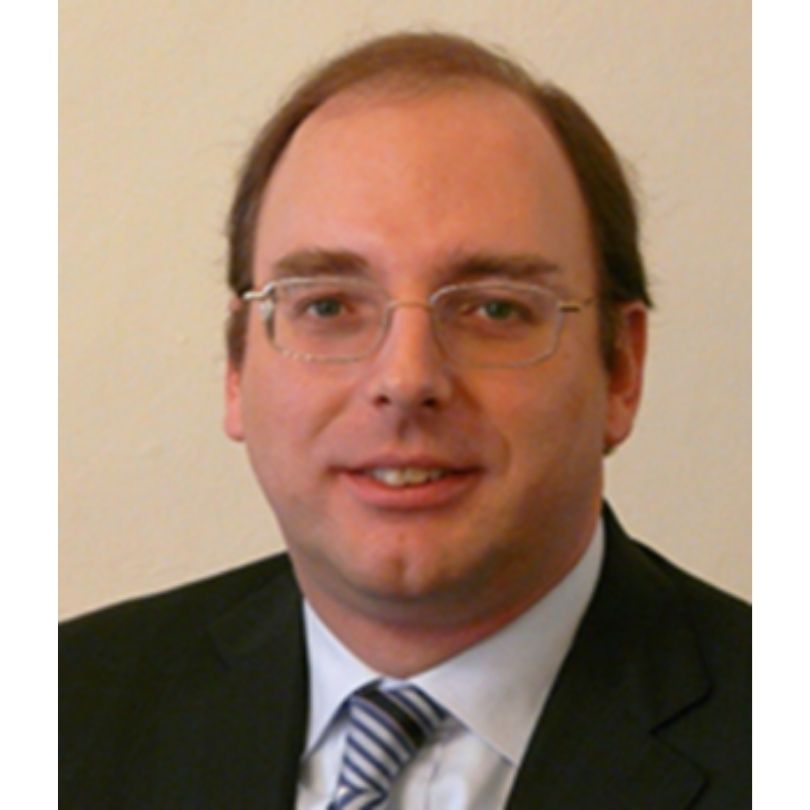
António M. Teixeira, Universidade Aberta, Portugal, Scientific coordinator of the Distance Education and eLearning Lab (LE@D), EDEN Senior Fellow, former member of the Council of EDEN Fellows
António M. Teixeira is an EDEN Senior Fellow and a former member of the EDEN Fellows Council Board. He was President (2013-16) and Vice President (2010-13) of EDEN. António is an Associate Professor with tenure at Universidade Aberta (UAb) and a member of the Department of Education and Distance Learning, which he headed from 2016 to 2020. He’s also the Scientific Coordinator of the Distance and eLearning Lab (LEaD) at UAb and an associated researcher at the University of Lisbon’s Centre of Philosophy. From 2006 to 2009, he was Pro-rector for innovation in Distance Learning at Universidade Aberta. Throughout the years, he has integrated several boards of directors and many expert committees and task forces in higher education institutions and organisations at the national and international levels. António has participated in over thirty international research projects and authored over two hundred scientific articles and other publications. His main research interests are educational innovation and learning futures, open education, particularly MOOCs, distance learning, AI in education, and educational ethics.

Diana Andone, Polytechnical University of Timisoara, Romania, EDEN Senior Fellow and EDEN Fellows Council Board member
Diana Andone is an EDEN Senior Fellow and EDEN Fellows Council Board Vice-chair. Diana is the Director of the Digital and Distance Education of Politehnica University of Timisoara, Romania, responsible for planning and implementing digital education and associate professor in multimedia, interactive and web technologies. She is passionate about ubiquitous access to technologies and how they can be used to improve people’s lives. Diana holds a PhD in Designing eLearning Spaces for Digital Students from the University of Brighton, UK, an MA in European Studies, a Learning about Open Learning, postgraduate distance education course at Heriot-Watt University, Edinburgh, UK, and an MSc in Artificial Intelligence at the Politehnica University of Timisoara, Romania. She is IEEE Education Society 2021 Distinguished Chapter Leadership Award winner, IEEE Education Society VicePresident (2024-2025), editor at several journals, with extensive research experience and intense publication and more than 35 research and educational international projects, she teaches course modules in universities from UK, France, USA, Finland, Italy, Greece.

Martin Ebner, Department of Educational Technology, Graz University of Technology, Austria
Martin Ebner is currently head of the Department of Educational Technology at Graz University of Technology and, therefore, responsible for all university-wide e-learning activities. He holds an Adjunct Professor position in media informatics (research area: educational technology). Also, he works at the Institute for Human-Centred Computing at Graz University of Technology as a senior researcher. His research focuses strongly on MOOCs & microcredentials, AI in education, open educational resources and computer science for children. Martin has given a number of lectures in this area, as well as workshops and keynotes at international conferences. For publications as well as further research activities, please visit his website: http://elearningblog.tugraz.at
Topic: Bridging the AI gap in Teacher Education: from mapping insights to actionable content portfolios
Format: Presentations and discussion with participants
Description: This webinar presents the outcomes of the Mapping Insights report, which identifies critical gaps in the integration of Artificial Intelligence in European teacher education. Drawing on a comprehensive analysis of curricula, best practices, focus group interviews and expert teacher perspectives across six countries, the session highlights key challenges such as fragmented AI training, limited pedagogical integration, and uneven institutional support. In response, the AI-Teach project is developing tailored content portfolios designed to directly address these gaps. These portfolios aim to support (pre-service) teachers and teacher educators by offering structured, pedagogically grounded, and context-sensitive resources that foster AI literacy, ethical awareness, and practical classroom application. The webinar will showcase how these portfolios are being shaped to empower educators in navigating and shaping AI-enhanced learning environments.
Speakers:

Marieke Decock, Guldesporencollege, Kortrijk, Belgium
Marieke Decock is an experienced secondary school teacher of Dutch and English in Kortrijk in Belgium, where she has been teaching since 2000. With a strong background in Germanic languages (BA and MA from KU Leuven) and pedagogical training, she has taken on numerous leadership roles in education. These include coordinating international Comenius and Erasmus+ projects, serving as subject head and coach for Dutch, and contributing to in-school training through Edulab. Her expertise spans curriculum innovation, digital teaching tools, and classroom management.
She is now enrolled in the AI-Teach Erasmus+ project at the research group itec, an imec research group at the Catholic University of Leuven, focussing on the mapping the state of the art in AI in Education.

Mildrid Kyte, Western Norway University of Applied Sciences, Norway
Mildrid Kyte is an assistant professor in science teacher education specialising in chemistry education at the Western Norway University of Applied Sciences. Her research interests focus on motivation and self-efficacy in science education, systems thinking and interdisciplinarity, and early science education. In addition, she is the project leader at her institution in the Erasmus+ project AI-teach, where she leads the work package involved in developing content portfolios aimed at developing teacher literacy in using AI in education.

Carl Boel, Vives University of Applied Sciences, Belgium
Carl Boel has 10 years of experience in immersive learning, i.e. learning and training using immersive technologies such as augmented, mixed, and virtual reality. In 2023, he obtained his PhD in this topic. In his day-to-day practice, he blends research with field expertise. He currently works at Vives University of Applied Sciences as a senior researcher on educational technology, with a focus on XR and AI technologies. He is engaged in several European projects aiming to enhance AI and XR literacy of in-service and pre-service teachers. In addition, Carl is a post-doctoral researcher and lecturer on educational technology at Ghent University. Carl was the main author of a framework aimed at implementing XR in education on a national scale, the world’s first. Together with Jelle Demanet, he also wrote a book on the promise of virtual reality across different disciplines.
In 2017, he founded Virtual Learning is Reality as an independent XR consultant, and has designed, developed, and tested multiple learning experiences for companies, organizations, and governmental institutions. While doing so, he noticed a need for scalable XR solutions which led to the birth of Dexr in 2022, a no-code authoring tool to create your own XR training, guided by evidence-based instructional design principles. After two years he decided to go back to academia continuing his quest for evidence-informed design and implementation of XR and AI technologies in education. Finally, he continues to expand his XR network as co-chair of XR Valley, content curator for Immersive Tech Week and as a member of the organizing committee of the Immersive Learning Research Network.
